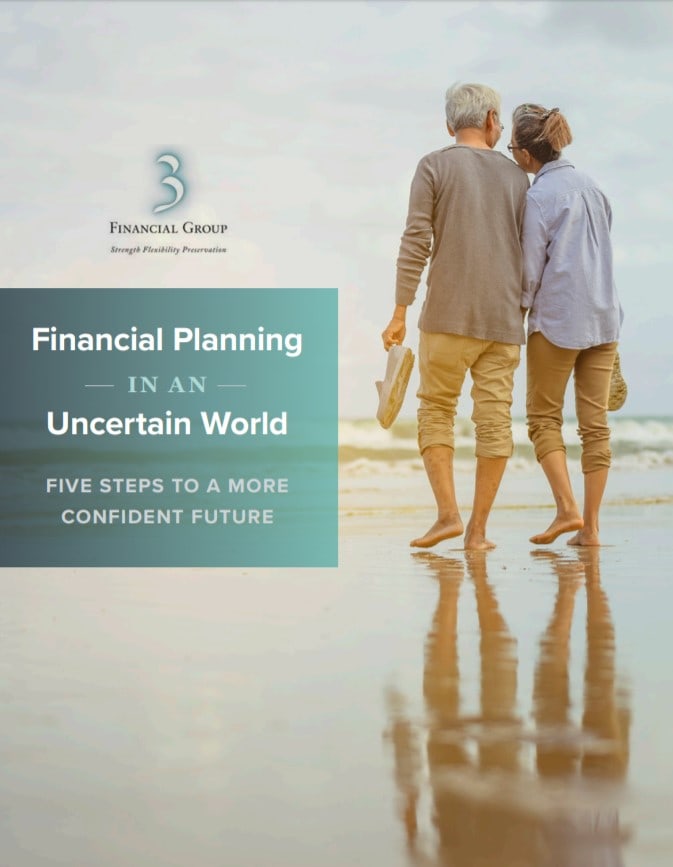Welcome to the world of financial feminism – a place where empowerment, knowledge, and equality come together to redefine the financial landscape. Even in today’s society, women and non-binary individuals are still fighting an uphill financial battle, from the gender pay gap to the underrepresentation in leadership roles and everything in between. It seems that the only people with access to financial security and education are the top 1%, but that is ultimately not true. In this blog, we’ll unravel the complex tapestry of finance, focusing on fostering strong, confident mindsets in financial planning for people of all gender identities.
Understanding Financial Feminism
Financial feminism is a movement, a philosophy that combines financial literacy and the pursuit of gender equality. At its core, financial feminism is driven by the belief that everyone, regardless of their gender identity, deserves equal access to financial opportunities, education, and security. Let’s get into the core principles and objectives of financial feminism:
- Equality in Financial Opportunities: Financial feminism strives to level the playing field, ensuring that individuals of all genders have equal access to financial resources, opportunities, and tools. This encompasses everything from fair wage practices to equal chances for investment and entrepreneurship.
- Educational Empowerment: Knowledge is power, and financial feminism advocates for comprehensive financial education for all. By demystifying financial concepts and promoting financial literacy, individuals can have the skills to make informed financial decisions.
- Addressing the Gender Pay Gap: A huge part of financial feminism is finding ways to confront and close the gender pay gap. This gap is a reflection of broader societal inequalities and biases that women and non-binary individuals face. Financial feminism seeks to bring these issues to the forefront, advocating for systemic changes that ensure fair compensation for all.
- Empowering Women in Leadership: Financial feminism recognizes the importance of representation in leadership roles. By advocating for more women in respected decision-making positions, a more inclusive and equitable financial landscape is possible.
- Economic Independence and Security: At its heart, financial feminism is about empowering individuals to achieve economic independence and security. This means having the confidence and resources to make choices that lead to a secure and prosperous future.
Building Financial Confidence
Empowering people with financial confidence is a cornerstone of financial feminism. However, financial confidence doesn’t happen overnight. It’s cultivated through education, experience, and the right strategies. Here, we’ll explore practical tips and resources that can help people of all gender expressions build a solid financial foundation, including budgeting, saving, investing, and negotiating.
Mastering the Art of Budgeting
- Start Simple: Begin with tracking your income and expenses.
- Set Clear Goals: Whether it’s saving for a vacation, investing in education, or building an emergency fund, having clear goals can help you stay focused and motivated.
- Regular Reviews: Regularly review and adjust your budget to make sure it aligns with your changing financial situation and goals.
The Power of Saving
- Automate Savings: Set up automatic transfers to your savings account. Contribute to your employer’s retirement plan. Even small, regular contributions can grow significantly over time.
- Emergency Fund: Aim to build an emergency fund that can cover 3 – 6 months of living expenses to provide a safety net for unexpected events.
- High-Interest Savings Accounts: Explore savings accounts with higher interest rates to maximize your savings growth. Use a savings account for emergency funds, but look to the stock and bond markets for your long-term money.
Investing in Your Future
- Start Small, Think Big: Begin with small investments. Saving just $5 a day adds up to $150 a month. At 6% interest that could amount to over $65,000 in 20 years!
- Educate Yourself: Utilize resources like financial blogs, podcasts, and books to increase your investment knowledge.
- Diversify: Diversifying your investments can help manage risk. Don’t put all your eggs in one basket. And having accounts spread out all over the place isn’t diversification!
Negotiating for What You’re Worth
- Research and Prepare: Know the industry standards for your role. Use this information as leverage in salary negotiations.
- Assertive Communication: Clearly state your value and the compensation you seek.
- Seek Support: Don’t hesitate to seek advice from mentors or financial advisors who can provide guidance and confidence in your negotiation tactics.
Tip: The AAUW now offers a free salary negotiation training program that helps women and men negotiate for higher pay and become better communicators. Click here to learn more!
Overcoming Barriers to Financial Freedom
Achieving financial freedom is a universal aspiration, yet the road has many gendered obstacles, like the gender pay gap, societal expectations, and a lack of representation. Understanding these barriers is the first step in dismantling them. Let’s dive into these unique challenges and explore practical strategies to overcome them.
Confronting the Gender Pay Gap
- Knowledge is Power: Educate yourself about the wage standards in your industry. Awareness of these standards is crucial in understanding and addressing pay disparities for women and the LGBTQ+ community.
- Policy Advocacy: Support and advocate for policies that promote pay transparency and equal pay for equal work. Don’t shy away from discussing salaries with peers and mentors to gain perspective.
- Join the Fight: Stay aware and get involved in the movement to close the gender pay gap. Many organizations have been pushing for equal pay on the state, federal, and global levels for decades, such as WomenEmployed, Equal Rights Advocates, and MADRE.
Challenging Societal Norms
- Redefining Roles: Challenge traditional gender roles that often dictate financial responsibilities and decision-making power. Embrace a mindset that encourages financial independence and responsibility for women and non-binary folks.
- Seek Role Models: Look for role models, mentors, or even online figures who you relate to and exemplify financial independence. Their journeys can provide inspiration and insight.
Building Financial Literacy
- Continuous Learning: Commit to keep learning about personal finance. This could include attending workshops, reading books, or following financial news and blogs.
- Financial Education Programs: Participate in financial education programs specifically designed for women and/or the LGBTQ+ community, as they’ll address unique challenges and opportunities.
Navigating Investment and Savings Challenges
- Think Long-Term: Begin your investment journey with what you can afford, focusing on long-term growth and diversification.
- Retirement Planning: Prioritize retirement planning, taking advantage of any employer-sponsored retirement plans and understanding the different retirement options available.
Overcoming Psychological Barriers
- Confidence Building: Work on building confidence in financial decision-making. This might involve self-education, attending seminars, or working with a financial advisor.
- Breaking the Taboo: Encourage open conversations about money and finances within your network. Breaking the taboo around these topics is essential for empowerment.
That’s a wrap on our journey through financial feminism! Remember, it’s all about taking steps, big or small, toward financial empowerment and knowing you’re not alone. If you need a boost of confidence or more hands-on guidance, 3 Financial Group is here to help. With our warm approach and deep understanding of the nuances of being a woman or non-binary person in the financial space, you can count on us to be a trusted friend in your financial corner.
CAS00001530/Dec2023


